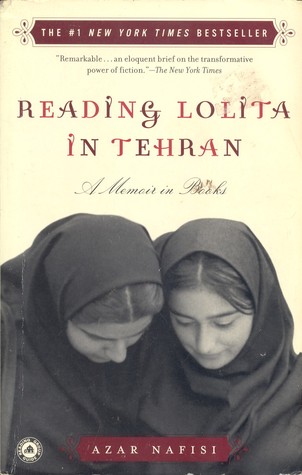 This book gives me all the feels. It makes me want to scream about the status of freedom and oppression in our own culture. It makes me want to rail against those who proclaim that “Freedom Isn’t Free” – indicating that they favor violence to keep their freedom; but any sign of a protest (peaceful or not) of a group they don’t belong to, they cry “RIOT!” and denounce anyone involved. Ye hypocrite! You are in favor of extreme violence to keep your own freedoms, but would deny the very shadow of lawlessness to anyone who desires the freedoms you already take for granted and claim you cherish so badly. If you’ve ever posted freedom isn’t free on any social media, you should be supporting any protest of anyone desiring their freedoms – be they violent or not. Instead of using what is usually incidental violence to deny these movements.
This book gives me all the feels. It makes me want to scream about the status of freedom and oppression in our own culture. It makes me want to rail against those who proclaim that “Freedom Isn’t Free” – indicating that they favor violence to keep their freedom; but any sign of a protest (peaceful or not) of a group they don’t belong to, they cry “RIOT!” and denounce anyone involved. Ye hypocrite! You are in favor of extreme violence to keep your own freedoms, but would deny the very shadow of lawlessness to anyone who desires the freedoms you already take for granted and claim you cherish so badly. If you’ve ever posted freedom isn’t free on any social media, you should be supporting any protest of anyone desiring their freedoms – be they violent or not. Instead of using what is usually incidental violence to deny these movements.
How dare you piss on someone else’s desire for freedom? When your freedom was bought with mass murder, genocide, and widespread oppression. And still is.
“What we search for in fiction, is not so much reality, but the epiphany of truth.”
Is religion all about oppression? Or is it just that, as it becomes institutionalized, those who have power determine that they want to exert control, and, over time oppress their congregants?
Or is it just fundamentalism that is about oppression? Maybe that’s it. But it seems like every faith, religion, or denomination is just a few steps away from that fundamentalism and thus oppression of the masses.
Fundamentalism just seems to be a way for those in power to exert control.
In America it seems to play out as a bunch of middle-aged white men deciding this is how you’re going to live, and I want to force you to do this.
In the Middle East, it plays out as a bunch of middle-aged brown man deciding this is how you’re going to live and I’m going to force you to do this.
This is why Republicans are liars when they say they don’t want to big government. They would love to be in control and use their religion to oppress the entire nation.
I think Azar Nafisi evokes such a visceral reaction because of the way that she describes her oppression. It’s almost like you can’t not internalize it. Especially if you have your own experience with religious oppression, albeit not at that level.
“What Nabakov creates for us in Invitation to a Beheading is not the physical pain and torture of a totalitarian regime but the nightmarish quality of living in an atmosphere of perpetual dread.”
This is an excellent description of fundamentalism.
Comparing Lolita to their own lives, the author suggests that the theme of Lolita is about the confiscation of someone’s whole life.
“We were all victims of the arbitrary nature of a totalitarian regime that constantly intruded into the most private corners of our lives and imposed it’s relentless fictions on us.”
With all the stuff going on in America – the police brutality (which isn’t new – just filmed – that’s a horrifying thought), the ignoble humiliation forced on us by the TSA (which was created to put some more money into some rich man’s pockets – not to keep us safe), I’m worried if the right people get in power that’s what will happen here. A theocracy run behind the scenes by corporations. And who will be the self-selected morality police? The right-wing nuts who support open carry and enforce the 2nd amendment.
It’s partly scary because the people in Iran didn’t have any idea that fundamentalism was about to take over. “… certain developments were not yet conceivable to some of us. To think that the universities could be closed down seemed as far-fetched as the possibility that women would finally succumb to wearing the veil.”
“How could we argue against the representative of God on earth? Mr. Barkley, for the time being at least derived his energy from the undeniable fact that he was on the side of right. I was at best a stray sinner.”
Azar is frustrated because the fundamentalists are emptying people’s heads. Hmm. Same…same.
I really got into Part 1. But as Part 2 went on, and into Part 3, this book seemed to drag on in parts. Part 3 is less of a narrative than a collection of events in chronological order that start to get tedious.
But it’s still an excellent book – if not to think about what would happen if fundamentalists take over, but as a chronicle of what happened in Iran.
“Living in the Islamic Republic is like having sex with a man you loathe…you make your mind blank – you pretend to be somewhere else, you tend to forget your body, you hate your body. That’s what we do over here. We are constantly pretending to be somewhere else – we either plan it or dream it.”
